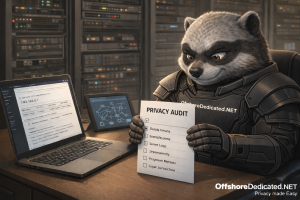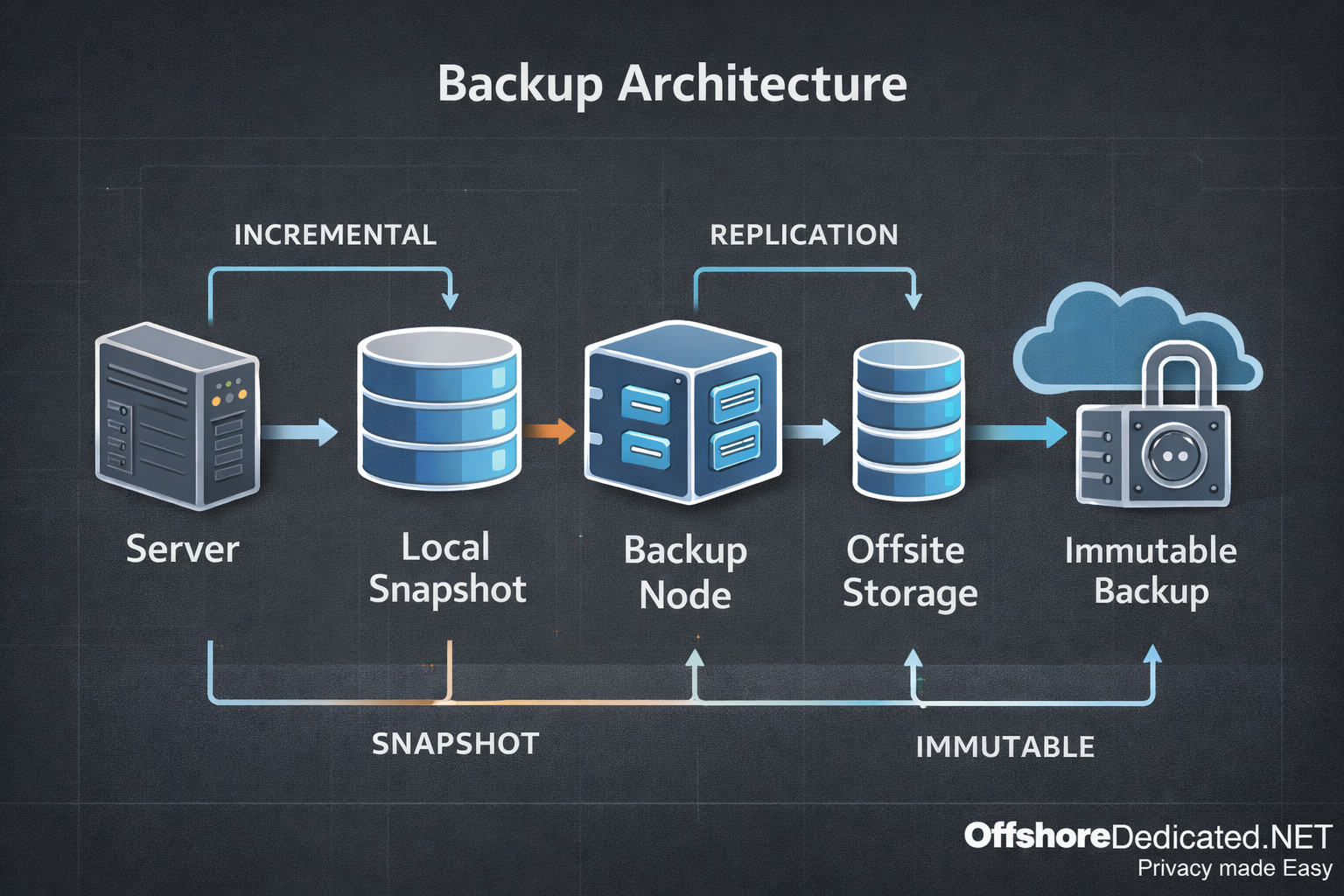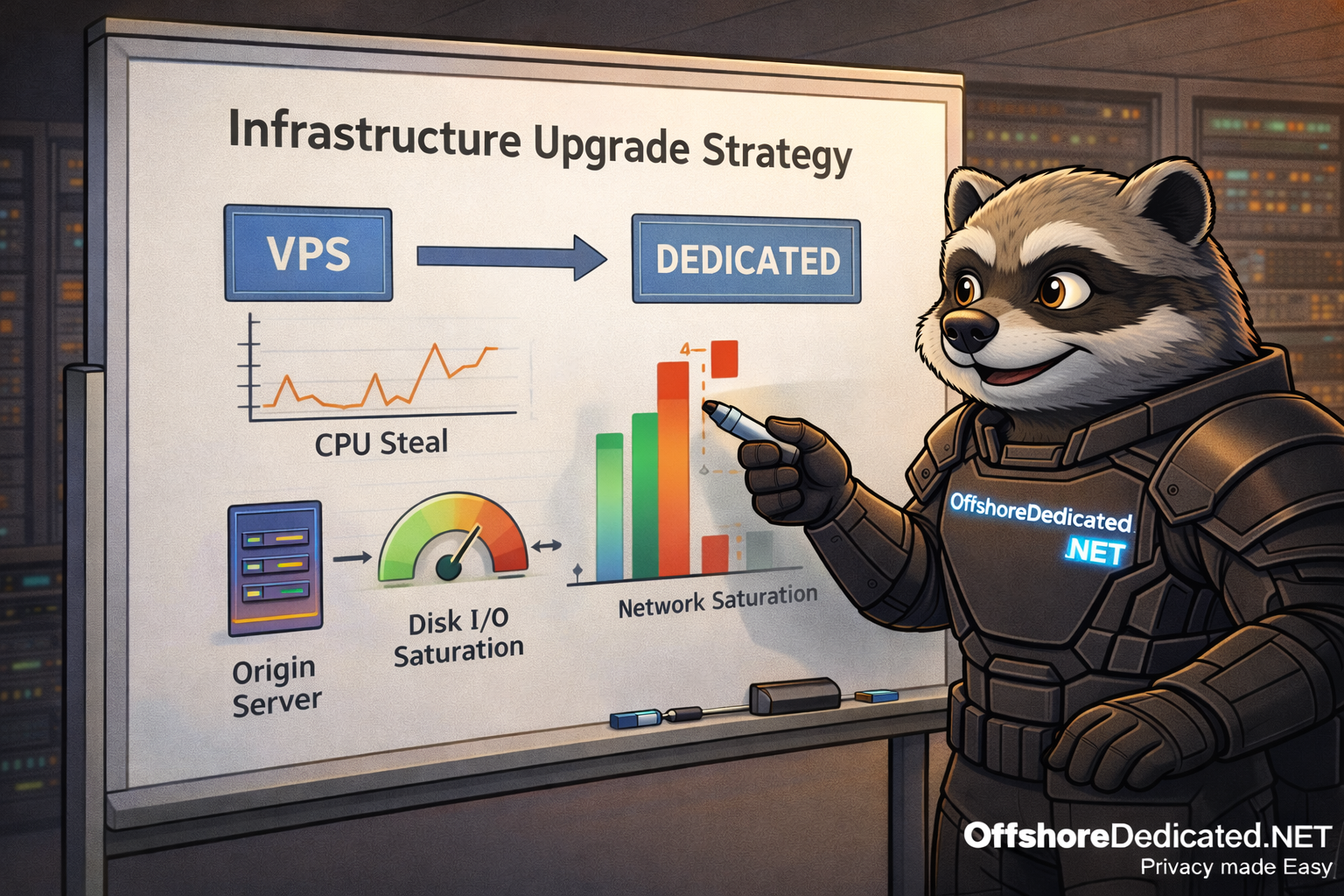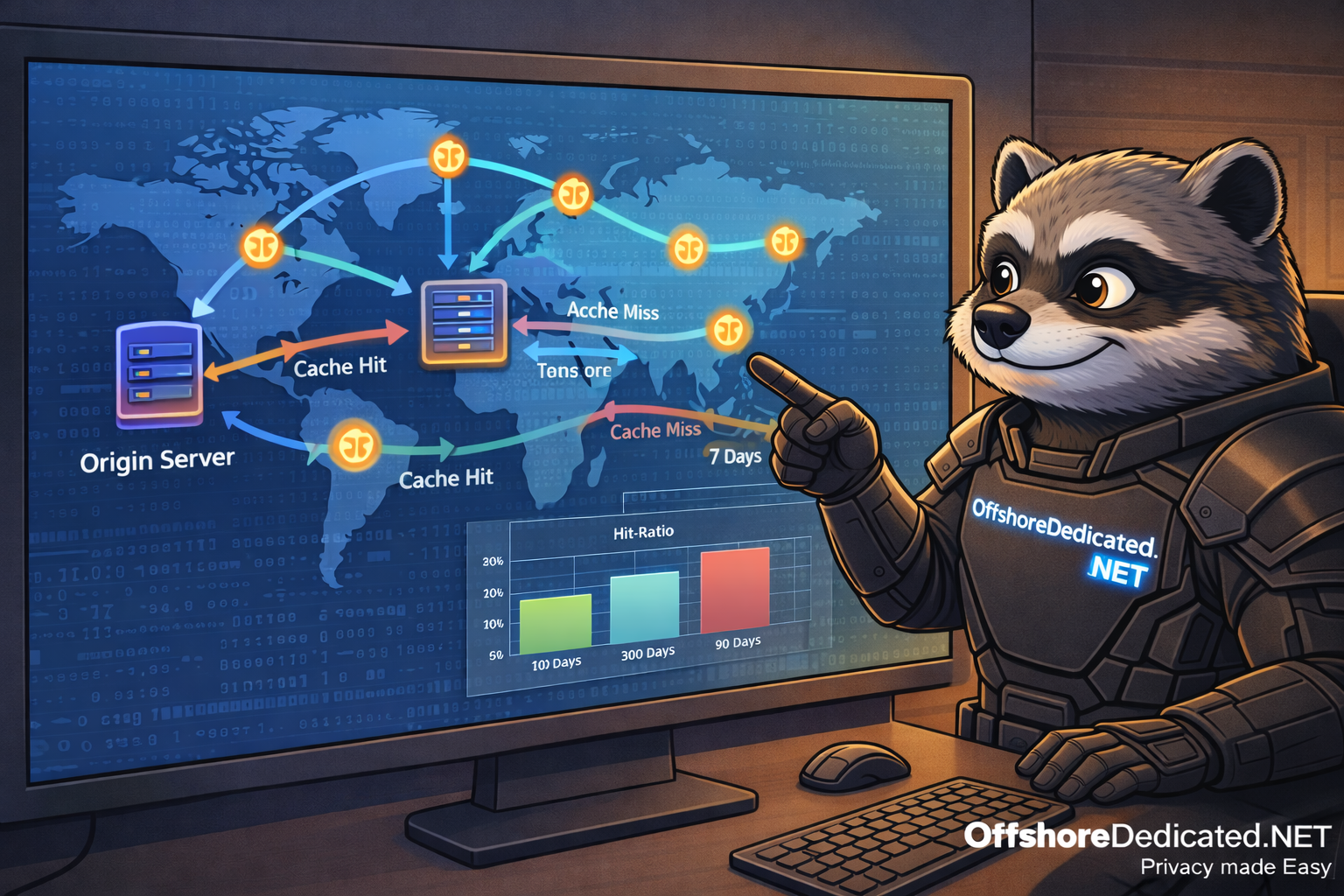Table of Contents
TogglePrivacy in hosting is often misunderstood. Many assume that enabling WHOIS protection completes the job. In reality, identity exposure can occur at multiple layers: domain registration, DNS configuration, IP attribution, server headers, application behavior, payment records, and operational habits.
For organizations and individuals using privacy-focused offshore infrastructure, identity protection is not about hiding wrongdoing — it is about reducing unnecessary exposure, protecting intellectual property, and maintaining operational compartmentalization.

This guide analyzes hosting privacy from an infrastructure perspective.
1. What “Hosting Privacy” Actually Means
Hosting privacy is the reduction of traceable identifiers across:
- Domain registration records
- DNS metadata
- IP address attribution
- Server configuration leaks
- Application-layer disclosures
- Administrative access patterns
True privacy is layered. A single configuration setting does not solve it.
2. Domain-Level Exposure (Beyond Basic WHOIS Privacy)
Modern TLDs often redact public WHOIS data. However, exposure can still occur through:
- Registrar account compromise
- Historical WHOIS databases
- Billing contact reuse across domains
- DNSSEC key association
- Name server fingerprinting
Practical Mitigation
- Use registrar privacy where available
- Avoid reusing administrative emails across unrelated projects
- Separate domain portfolios by operational context
- Regularly audit registrar account security (2FA mandatory)
If domain strategy intersects with infrastructure geography, see our in-depth analysis of hosting location and regulatory exposure.
3. DNS & IP Fingerprinting Risks
Even when WHOIS is private, DNS records may expose infrastructure clues.
Common leakage vectors:
- Custom name servers revealing provider patterns
- Glue records exposing underlying IP blocks
- Reverse DNS (PTR records)
- Passive DNS historical records
- Shared hosting neighbor enumeration
Infrastructure-Level Controls
- Use provider-managed DNS where appropriate
- Audit reverse DNS records
- Avoid exposing staging subdomains publicly
- Understand ASN ownership visibility (RIPE/ARIN/APNIC lookups)
In VPS and dedicated environments, IP allocation is directly attributable to upstream providers. When deploying offshore Cloud Servers infrastructure, IP footprint awareness is essential.
4. Server-Level Identity Leakage
Many exposure points occur at the web server layer.
Examples:
- HTTP response headers revealing software versions
- Default Apache/Nginx server tokens
- Exposed control panel paths
- Misconfigured directory listings
- Email headers revealing originating server IP
Hardening Practices
- Disable server signature exposure
- Minimize verbose error output
- Restrict control panel access via firewall rules
- Review outbound mail headers for IP disclosure
For deeper understanding of orchestration layers affecting server behavior, review our analysis of control panel architecture and resource overhead.
5. Application-Layer Exposure
Content management systems frequently leak more information than infrastructure itself.
Common risks:
- Public backup archives in web root
- .env file exposure
- Git directory leaks
- Debug mode enabled in production
- Predictable admin URL structures
Operational privacy requires:
- Proper file permissions
- Environment variable isolation
- Routine security audits
- Minimal plugin footprint
6. Operational Hygiene (SSH, Logs, Access Patterns)
Administrative behavior can undermine infrastructure privacy.
Exposure patterns include:
- Reusing SSH keys across environments
- Logging in from consistent identifiable IP ranges
- Ignoring authentication logs
- Weak firewall policies
Recommended discipline:
- Use key-based authentication only
- Audit authentication logs regularly
- Monitor unusual login times
- Segment administrative access
For technical log diagnostics in hosting environments, refer to our Linux command diagnostics guide for cPanel/WHM systems.
7. Hosting Location & Jurisdictional Considerations
Infrastructure geography affects:
- Data retention obligations
- Content enforcement policies
- Subpoena enforceability
- Regulatory disclosure frameworks
Jurisdiction-aware hosting is not about evasion — it is about understanding legal boundaries across regions.
When deploying privacy-focused infrastructure, evaluate how regional policies influence operational exposure.
8. Payment & Account Compartmentalization
Identity trails often originate from billing systems.
Consider:
- Payment processor data retention
- Email reuse across accounts
- Account cross-linking
- Invoice metadata
Best practice:
- Separate operational billing identities
- Avoid mixing personal and infrastructure accounts
- Maintain clean administrative boundaries
9. Common Privacy Myths
Myth 1: WHOIS privacy guarantees anonymity
False. Exposure can occur at DNS, server, and application layers.
Myth 2: Using offshore hosting automatically removes exposure
False. Misconfigured services leak data regardless of geography.
Myth 3: Privacy equals invisibility
False. Privacy reduces unnecessary disclosure; it does not eliminate traceability.
10. Infrastructure Privacy Checklist
- Domain WHOIS protection enabled
- Registrar 2FA enforced
- Reverse DNS audited
- Server tokens disabled
- Control panel access restricted
- Debug modes disabled
- SSH keys segmented
- Authentication logs monitored
- Payment accounts compartmentalized
Final Thoughts
Privacy in hosting is achieved through layered discipline — not single features.
A privacy-focused hosting strategy combines:
- Jurisdiction awareness
- Infrastructure hardening
- Application hygiene
- Operational compartmentalization
When implemented properly, privacy becomes a structural property of your infrastructure — not a marketing label.




